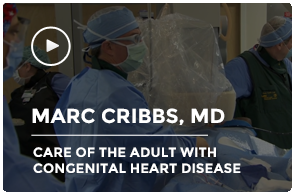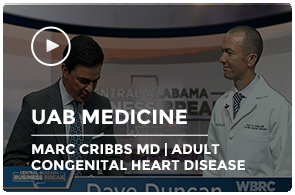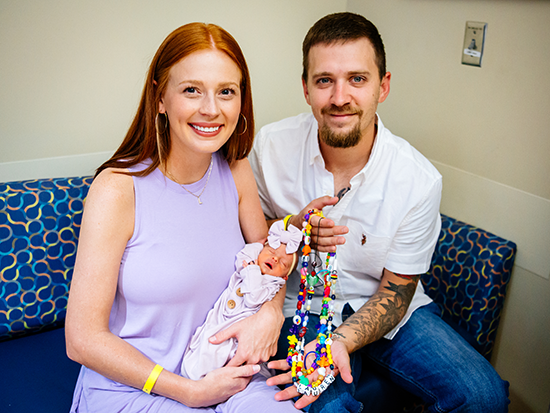A patent foramen ovale (PFO) closure is a procedure to close a small hole in the heart that exists during fetal development to promote blood flow and, in the majority of cases, either closes on its own during infancy or remains open but never causes problems. A small flap-like opening, the foramen ovale is located in the wall between the two upper chambers of the heart. In about one out of four people, the hole does not close on its own, but fewer than 1 percent of people ever need to have a PFO closed.
Closure may be recommended if the PFO is suspected to be causing otherwise unexplained strokes, transient ischemic attacks (TIAs, or “mini strokes”), or embolisms (bloodstream blockages). Closure involves a small incision usually made in the inner thigh area, through which a catheter holding a closure device is inserted into a large vein and slowly guided into the heart. Once the catheter reaches the PFO, the device is released and allowed to expand into the intended shape necessary to seal the hole. The catheter is then removed, but the closure device remains as a permanent implant. The procedure typically is followed by a chest X-ray and/or an echocardiogram to confirm that the device is properly positioned.
The UAB Congenital Heart Disease Program offers the most advanced care for congenital (present at birth) heart disease, which often requires lifetime monitoring and care. Our multi-specialty team of pediatric and adult cardiologists, cardiovascular surgeons, cardiovascular anesthesiologists, and maternal-fetal medicine specialists have unique expertise in treating patients before birth and into adulthood.
UAB Medicine’s modern ultrasound equipment allows many heart defects to be diagnosed before a child is born. Screening exams performed at 18-20 weeks are recommended for expecting mothers or fathers known to have congenital heart disease. If a defect is discovered, our experts provide prenatal treatment and develop a plan for delivery and treatment after birth.
Thanks to advances in pediatric congenital care, the life expectancy for most patients now reaches far into adulthood. However, more than half of the people with congenital heart problems stop seeing a cardiologist once they turn 18. UAB’s Alabama Adult Congenital Heart Disease Program is designed to prevent that gap in care. As the only adult congenital heart disease program in the state and one of only a few in the country, our expertise greatly increases the chances that symptoms will be identified early. This helps ensure that less serious problems are addressed before they develop into larger, more life-threatening issues such as heart failure, arrhythmia, residual congenital heart defects, endocarditis, and stroke.
Videos
Resources
- UAB Cardiovascular Surgery Patient Guide 2022
- UAB Division of Cardiovascular Disease
- UAB Division of Cardiothoracic Surgery
- UAB Division of Pediatric Cardiology
- American Heart Association
- Pediatric Cardiovascular Services
Related Specialties
- Atrial Septal Defect
Bicuspid Aortic Valve
Congenital Heart Disease
Ebstein’s Anomaly
Fetal Cardiac Services
Hypoplastic Left Heart Syndrome (HLHS)
Marfan Syndrome
Tetralogy of Fallot
Transposition of the Great Arteries (TGA)
Ventricular Septal Defect
Clinical Trials
Speak to your physician about your options and browse the link below for more information
Latest News
View All News-
UAB researchers evaluate the efficacy of new cardiovascular disease risk equation in multiple studies
June 24, 2025
-
Voucher awards will accelerate spatial biology research
April 2, 2025
-
How to help children develop heart-healthy habits
February 27, 2025
-
“A blessing to be able to be here” — UAB employees provide fellow employee lifesaving care after cardiac arrest
February 11, 2025
-
Women’s heart health: Here is what you should know
February 3, 2025





